The recent news
Feb. 2, 2023
Publications

♾️ follow Marie-Anne Frison-Roche on LinkedIn
♾️ subscribe to the Newsletter MAFR Regulation, Compliance, Law
____
► Full Reference: M.-A. Frison-Roche, "Conforter le rôle du Juge et de l'Avocat pour imposer la Compliance comme caractéristique de l'État de Droit" ("Reinforce the Judge and the Attorney to impose Compliance Law as a characteristic of the Rule of Law"), in M.-A. Frison-Roche (dir.), La juridictionnalisation de la Compliance, coll. "Régulations & Compliance", Journal of Regulation & Compliance (JoRC) and Dalloz, 2023, p. 29-55.
____
► This article is the introduction of the book.
____
📝read the article (in French)
____
🚧read the bilingual Working Paper which is the basis of this article, with additional developments, technical references and hyperlinks
____
📕read a general presentation of the book, La juridictionnalisation de la Compliance, in which this article is published
____
► Summary of the article (done by the Journal of Regulation & Compliance): One can understand that the compliance mechanisms are presented with hostility because they seem designed to keep the judge away, whereas there is no Rule of Law without a judge. Solid arguments present compliance techniques as converging towards the uselessness of the judge (I). Certainly, we come across magistrates, and of all kinds, and powerful ones, but that would be a sign of imperfection: its ex-ante logic has been deployed in all its effectiveness, the judge would no longer be required... And the lawyer would disappear so with him...
This perspective of a world without a judge, without a lawyer and ultimately without Law, where algorithms could organize through multiple processes in Ex Ante the obedience of everyone, the "conformity" of all our behaviors with all the regulatory mass that is applicable to us, supposes that this new branch of Law would be defined as the concentration of processes which gives full effectiveness to all the rules, regardless of their content. But supposing that this engineer's dream is even achievable, it is not possible in a democratic and free world to do without judges and lawyers.
Therefore, it is imperative to recognize their contributions to Compliance Law, related and invaluable contributions (II).
First of all, because a pure Ex Ante never existed and even in the time of the Chinese legists, people were still needed to interpret the regulations because a legal order must always be interpreted Ex Post by who must in any case answer the questions posed by the subjects of law, as soon as the political system admits to attributing to them the right to make claims before the Judge. Secondly the Attorney, whose office, although articulated with the Judge's office, is distinct from the latter, both more restricted and broader since he must appear in all cases where the judicial figure puts himself in square, outside the courts. However, Compliance Law has multiplied this since not only, extending Regulatory Law, it entrusts numerous powers to the administrative authorities, but it also transforms companies into judges, in respect of which the attorneys must deal with.
Even more so, Compliance Law only takes its sense from its Monumental Goals. It is in this that this branch of the Law preserves the freedom of human beings, in the digital space where the techniques of compliance protect them from the power of companies by the way that the Compliance Law forces these companies to use their power to protect people. However, firstly, it is the Judges who, in their diversity, impose as a reference the protection of human beings, either as a limit to the power of compliance tools or as their very purpose. Secondly, the Attorney, again distinguishing himself from the Judge, if necessary, reminds us that all the parties whose interests are involved must be taken into consideration. In an ever more flexible, soft, and dialogical Law, everyone presenting himself as the "advocate" of such and such a monumental goal: the Attorney is legitimate to be the first to occupy this place.
________
Feb. 2, 2023
Publications

► Full reference: M.-A. Frison-Roche, "Ajuster par la nature des choses le Droit processuel au Droit de la Compliance" ("Adjusting by the nature of things General Procedural Law to Compliance Law"), in M.-A. Frison-Roche (ed.), La juridictionnalisation de la Compliance, coll. "Régulations & Compliance", Journal of Regulation & Compliance (JoRC) and Dalloz, 2023, p. 251-262.
____
📝read the article (in French)
____
🚧read the bilingual Working Paper which is the basis of this article, with additional developments, technical references and hyperlinks
____
📕read a general presentation of the book, La juridictionnalisation de la Compliance, in which this article is published
____
► The principal elements of this articles had been presented during the scientific manifestation held on September 23, 2021, at Dauphine University in Paris, coorganised by the Journal of Regulation & Compliance (JoRC) and the Institute Droit Dauphine.
In the book this article is placed in the chapter II about the General Procedural Law in the Compliance Law.
____
► Summary of the article (done by the Journal of Regulation & Compliance): Procedural law is an invention, essentially due to professor Motulsky, going well beyond the gain that one always has in comparing types of procedures with each other. As he asserted, there is Natural Law in General Procedural Law, in that as soon as there is the Rule of Law Principle there cannot be, whatever the "procedure", even the "process" such and such way of doing things: for example, to decide, to seize the one who decides, to listen before deciding, to contest the one who has decided.
General Procedural Law therefore depends on the nature of things. However, Compliance Law organizes things in a new way. Therefore, both the simple and iron principles of General Procedural Law creep in where we do not expect them at first sight, because there is no judge, this character around whom ordinary procedures fit together. The principles of General Procedural Law are essential in companies. Even if the regulations do not breathe a word about it, it is up to the Judges, in particular the Supreme Courts, to recognize this nature of things because on this effect of nature that General Procedural Law is built: when compliance mechanisms oblige companies to strike, General Procedural law must oblige, even in the silence of the texts, to arm those who can be hit, even stand up against devices that would set aside too much these defenses that are easily considered contrary to efficiency (I).
But because it is a question of making room for this nature of the things of which the Rule of Law Principle entrusts the custody to the Judge and the Lawyer, the General Procedural Law must also adjust itself to what the extraordinary new branch of Law Compliance Law is. Indeed, Compliance Law is extraordinary in that it expresses the political pretention to act now so that the future will not be catastrophic, by detecting and preventing the realization of systemic risks, or even that it is better, by building effective equality or real concern for others. Because it is the Monumental Goals that defines this new branch of Law, a disputed systemic issue, possibly disputed by several parties before a judge, the procedural principles used by the court must be broadened considerably: they must then include civil society and the future (II).
General Procedural Law thus naturally acquires an even more place than in the classic branches of Law since on the one hand it imposes itself outside of trials, particularly in companies and on the other before the courts it involves people who had hardly any place to speak and thinks themselves, especially the systems entering the "causes" of Compliance now debated before the Judge.
________

Jan. 25, 2023
Publications

♾️suivre Marie-Anne Frison-Roche sur LinkedIn
♾️s'abonner à la Newsletter MAFR Regulation, Compliance, Law
____
 ► Référence générale : Frison-Roche, M.-A. Les grands cas juridictionnellement résolus par le Droit de la compliance, document de travail, janvier 2023.
► Référence générale : Frison-Roche, M.-A. Les grands cas juridictionnellement résolus par le Droit de la compliance, document de travail, janvier 2023.
____
🎤 Ce document de travail a été élaboré pour servir de base à une intervention sur ce thème, prenant place dans la formation de deux jours conçus par François Ancel et Marie-Anne Frison-Roche sur Le Droit de la Compliance pour l'Ecole nationale de la Magistrature, les 2 et 3 février 2023.
____
____
► Résumé du document de travail : Le

Dec. 31, 2022
Antechronological CV
♾️ follow Marie-Anne Frison-Roche on LinkedIn
____
► read the general presentation of Marie-Anne Frison-Roche
► travel to the future:
► travel to the past:
► go back to the general CV, bringing to several specific thematic CVs :
📜 Economic Law and Regulatory & Compliance Law
📜 Theory, Sociology & Philosophy of Law
►Academic Titles and diploma (for more details, s. general CV,) :
🎓 Full professor of University, first Class.
🎓 first place of the Agrégation des Facultés de Droit en droit privé et sciences criminelles (French National recruitment Contest for recrutement of University Professors in Private and Criminal Law), 1991,
🎓 PHD in Law, Paris Panthéon-Assas University, Summa Cum Laude ; thesis published.
🎓 Master in Private Law, Panthéon-Sorbonne University, Cum Laude
🎓 bachelor's in philosophy, Sorbonne University,
🎓 Master in Procedural Law, Panthéon-Assas University, Summa Cum Laude

Updated: Dec. 28, 2022 (Initial publication: July 10, 2022)
Publications

♾️ follow Marie-Anne Frison-Roche on LinkedIn
♾️ subscribe to the Newsletter MAFR Regulation, Compliance, Law
____
 ► Full reference: M.A. Frison-Roche, Regulatory and Compliance Law, expression of the missions of a professional Order, Working Paper, July 2022.
► Full reference: M.A. Frison-Roche, Regulatory and Compliance Law, expression of the missions of a professional Order, Working Paper, July 2022.
____
🎤 This Working Paper has been done as basis for an intervention in the Annual Congress of the French Professional Order of the Géomètres-Experts, September 15, 2022 (conference given in French)
____
🎥watch the short presentation of this speech (in French)
____
🎥watch the full speech given on 15 September 2022, based on this working paper
____
► Summary of the Working Paper: Professional orders should not present themselves as exceptions, however legitimate they may be, in relation to a principle, which would be the competitive system, but as the expression of a principle. This principle is expressed by two branches of Law whose importance is constantly growing in European Law, liberal branches which are based on the conception of economic life and the definition of company, turned towards the future: the Regulatory Law and Compliance Law, two branches of Law at the same time related and distinct.
Indeed, and this is the topic of the first part, Competition Law conceives professional orders as exceptions since these "corporations" constitute structural agreements. French domestic legal system both consolidates the professional orders by backing them up to the State, which would sub-delegate its powers to them, but involves them in the questioning by the European Union of the States and their tools. Most often the temptation is then to recall with a kind of nostalgia the times when the professional orders were the principle but, except to ask for a restoration, the time would be no more.
A more dynamic approach is possible, in accordance with the more general evolution of Economic Law. Indeed, the Professional Order is the expression of a profession, a little-exploited concept in Economic Law, over which the Order exercises the function of "Second-level Regulator", the public authorities exercising the function of "First-level Regulator". The Banking and Financial Regulatory Law is built in this way and operates thank to that, at national, European, and global level. This is what should be linked.
The Professional Orders therefore have the primary function of spreading a "Culture of Compliance" among the professionals they supervise and beyond them (clients and stakeholders). This culture of Compliance is developed regarding the missions which are concretized by the professionals themselves.
Therefore, the second part of the Working Paper deals with the legal evolution of the notion of "Mission" which has become central in Economic and General Law, through the technique of the mission-based company. However, there are multiple points of contact between the raison d'être, the company with a mission and Compliance Law as soon as the latter is defined by the concrete and overly ambitious goals that it pursues. : the Monumental Goals.
Each structure, for example the French Ordre des Géomètres-Experts, is legitimate to set the Monumental Goal that it pursues and that it inculcates, in particular the conception of territory and the living environment, joining what unites all the Monumental Goals of Compliance: concern for others. The French Ordre des Géomètres-Experts, is adequate because it has a more flexible relationship, both tighter and broader, with the territory than the State itself.
By instilling this in professionals, the Professional Order develops in the practitioner an "ex ante responsibility", which is a pillar of Compliance Law, constituting both a charge and a power that the practitioner exercises, and of which the Professional Order must be the supervisor.
____
🔓read the Working Paper⤵️
Dec. 8, 2022
Conferences
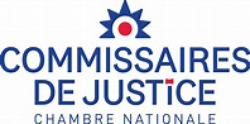
♾️ suivre Marie-Anne Frison-Roche sur LinkedIn
♾️s'abonner à la Newsletter MAFR Regulation, Compliance, Law
____
► Référence complète : M.-A. Frison-Roche, "La compliance, perspective dynamique pour exprimer la raison d'être des commissaires de justice", in Table-ronde sur "Professions réglementées, ambitions et enjeux", Congrès annuel national des Commissaires de justice, Paris, 8 décembre 2022.
____
►lire le programme complet du congrès et 🎥regarder la présentation du colloque par le président du Congrès
____
____
►présentation de l'intervention : Ce premier congrès annuel national des Commissaires de justice, réunissant pour la première fois la profession réformée, a débuté par un débat de 2 heures animé par une journaliste, débat entre les autres professions, les autorités publiques (Autorité de la concurrence, Chancellerie), ayant pour ma part à y apporter le regard académique :
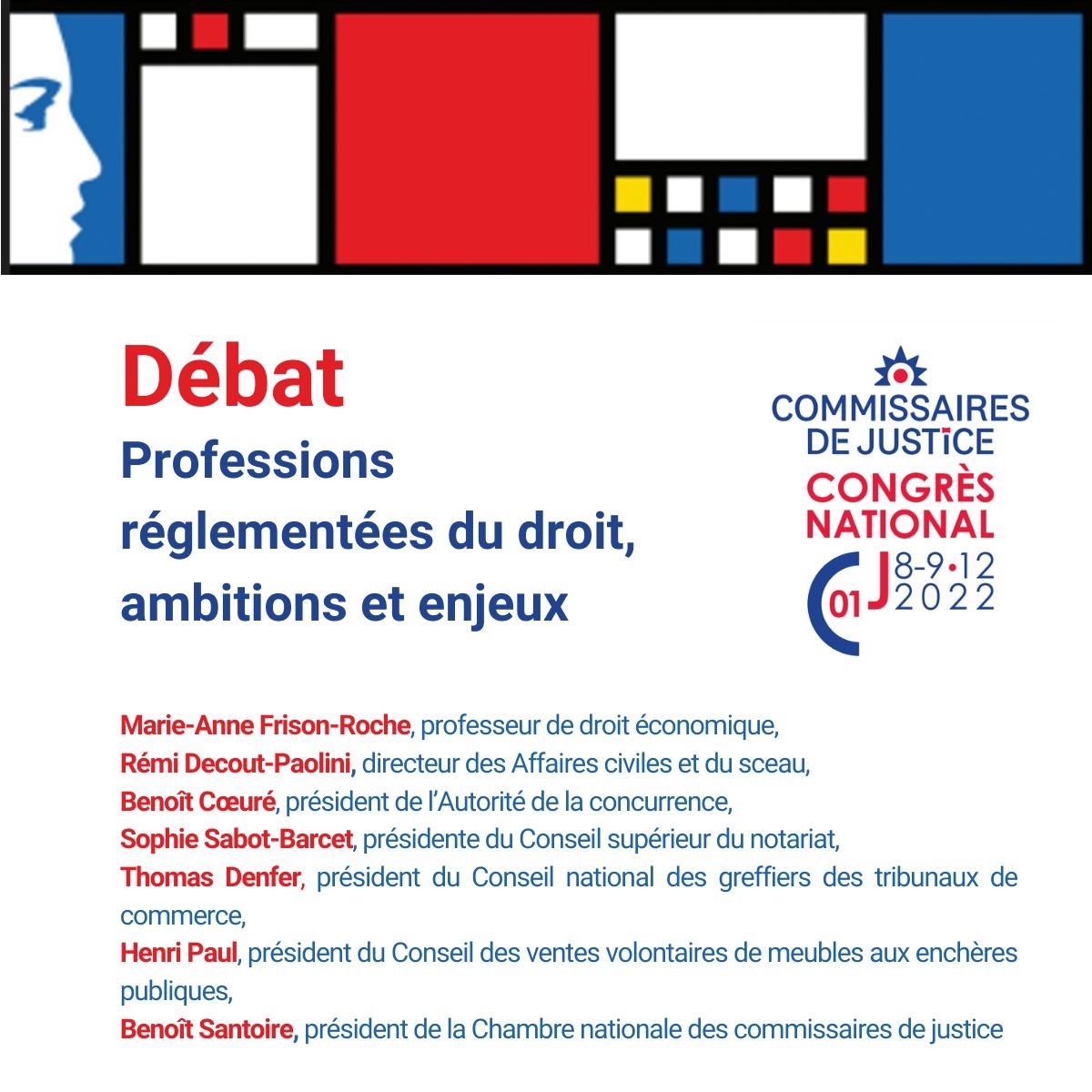
Ce débat fut particulièrement animé et vivant, ne serait-ce qu'en raison de la configuration des lieux, chacun étant placé pour entrer dans un dialogue :
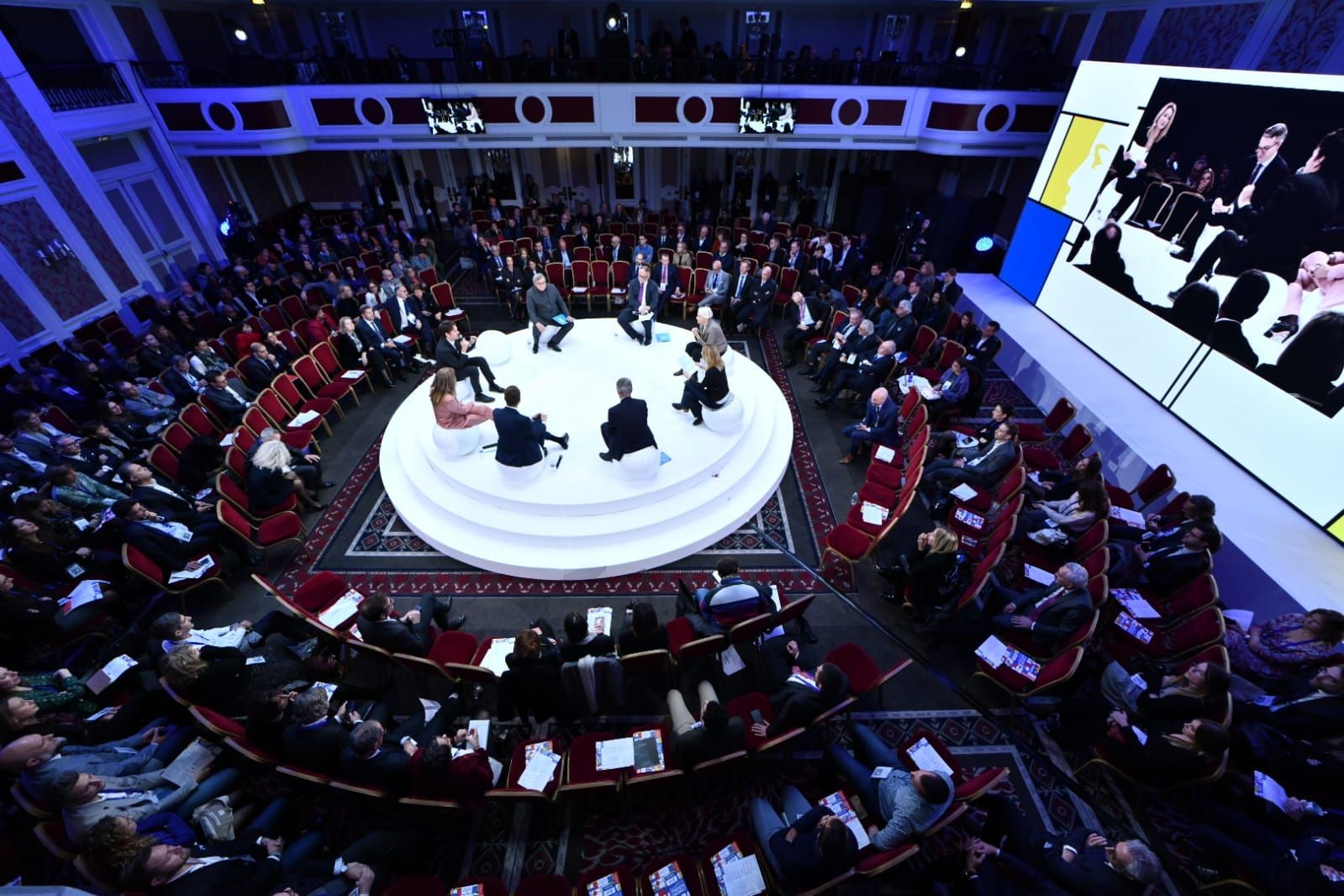
🎤 J'y pris la parole en premier pour insister sur le fait que les "professions" sont des structures qui ont un grand avenir, en ce qu'elles s'articulent avec le système économique libéral, qu'elles sont par nature régulées et porteuses de régulation, dans des systèmes qui, pour demeurer libéraux, vont en avoir de plus en plus besoin. Cela est pertinent pour la profession des Commissaires de justice qui procurent de la sécurité, via de l'incontestabilité reposant aussi sur le lien entre celle-ci et les faits, et qui assurent l'effectivité des engagements en gardant le souci du lien social.
🎤 J'ai repris la parole lorsque la place de la Compliance fut évoquée. Dépassant l'exigence de "conformité", qui n'est qu'un outil de la Compliance, j'ai montré l'avenir du Droit de la Compliance, notamment dans l'Europe qui associe dynamisme économique, souci des personnes et de l'environnement, et l'alliance que cela implique entre les Autorités politiques et publiques et les entités susceptibles de participer à la concrétisation de ces Buts Monumentaux de la Compliance.
📕 Pour aller plus loin : M.-A. Frison-Roche (dir.), Les buts monumentaux de la compliance, 2022.
________
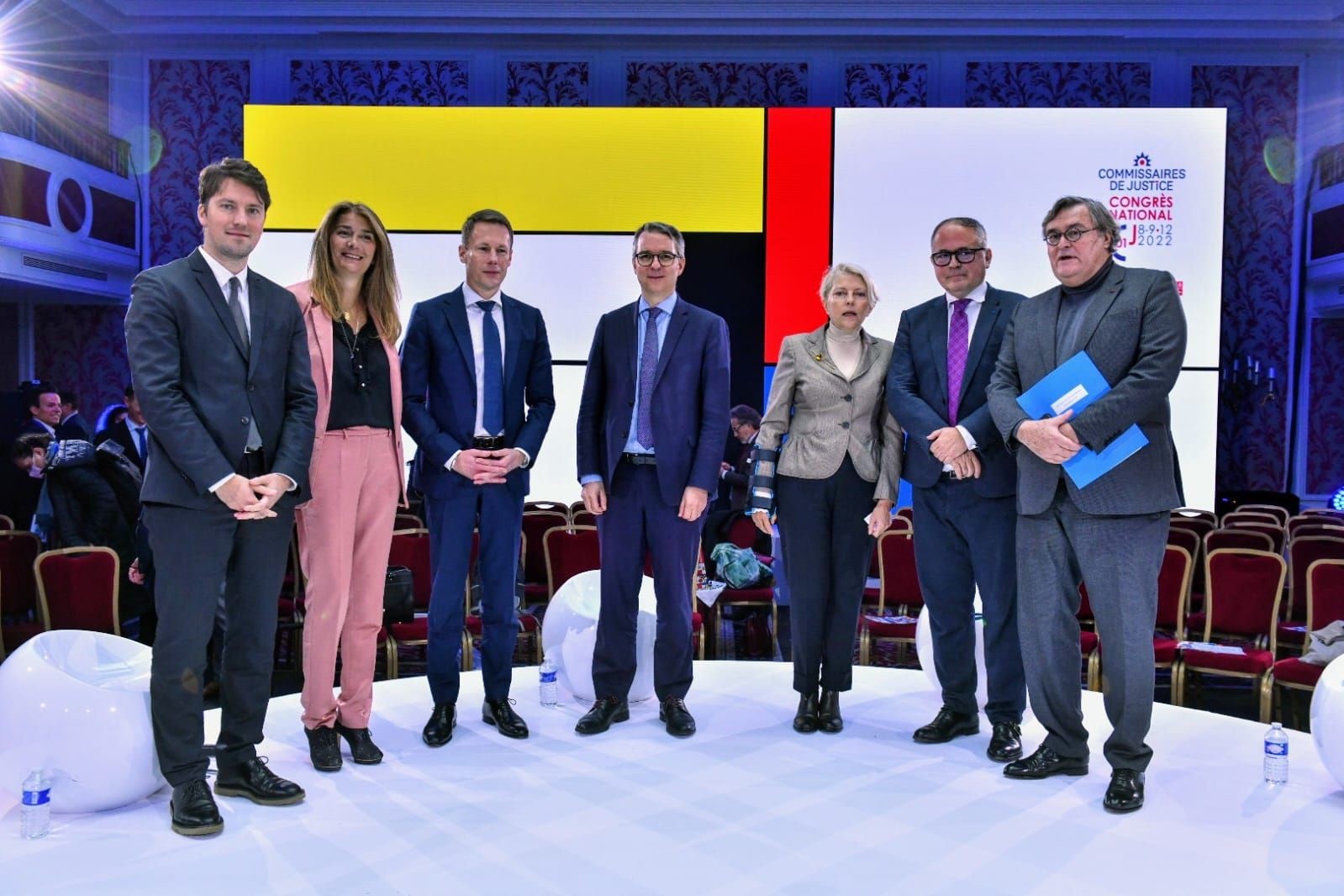
regarder la présentation du colloque par le président du Congrès

Dec. 5, 2022
Teachings : Participation à des jurys de thèses

♾️ suivre Marie-Anne Frison-Roche sur LinkedIn
♾️s'abonner à la Newsletter MAFR Regulation, Compliance, Law
____
► Référence : M.-A. Frison-Roche, membre du jury de la thèse d'Antoine Oumedjkane, Compliance et droit administratif, Université de Montpellier, Salle des Actes, Université de Montpellier, 5 décembre 2022, 14h-
____
► Autres membres du jury :
- Pascale Idoux, directrice de la thèse
- Lucie Cluzel-Métayer, rapporteure
- Aude Rouyère, rapporteure
- Thomas Perroud, professeur à l'Université Panthéon-Assas (Paris II)
____
► Résumé de la thèse :
____
Dec. 1, 2022
Publications
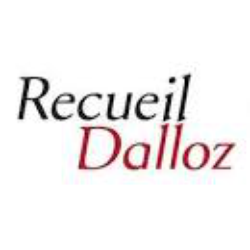
🌐 follow Marie-Anne Frison-Roche sur LinkedIn
🌐subscribe to the Newsletter MAFR Regulation, Compliance, Law
____
► Full Reference: M.-A. Frison-Roche, "Contrat de compliance, clauses de compliance", Chronique of Compliance Law, D.2022, p.2115-2117.
____
📝reac the article (this article is written in French)
____
► English summary of the article: Compliance Law is often seen only as an obligation to comply with regulations. Contract Law is masked by the study of texts and sanctions. Civil liability cases are beginning to highlight the commitments of companies, acts of will. It remains to discern the importance of contracts.
First, there is a specific contract: the "compliance contract". Its purpose is to provide a third party with a service, the means for the company to "comply" with the legal systems requirements ("contract of conformity"), and/or to enable the company to achieve the monumental goals that characterize Compliance Law (contract of compliance). The interpretation and the regime of these compliance contracts must be marked by the Compliance Law that permeates it. Secondly, there are a multitude of stipulations aimed at conformity and Compliance.
____
🚧read the working paper written in English: Compliance contract, Compliance stipulations
____
📚read the other articles published in this chronique of Compliance Law published in the Recueil Dalloz.
________